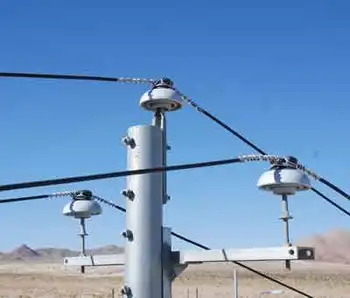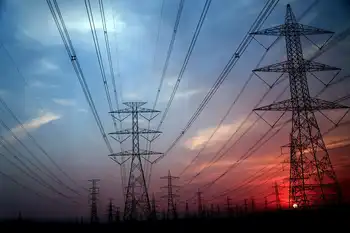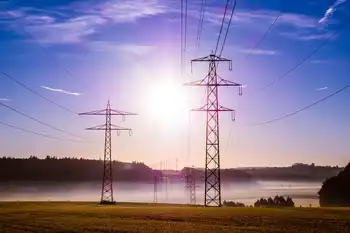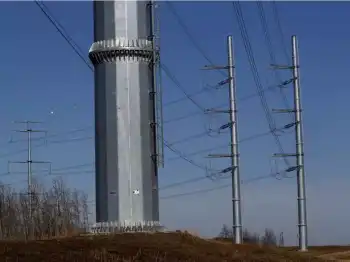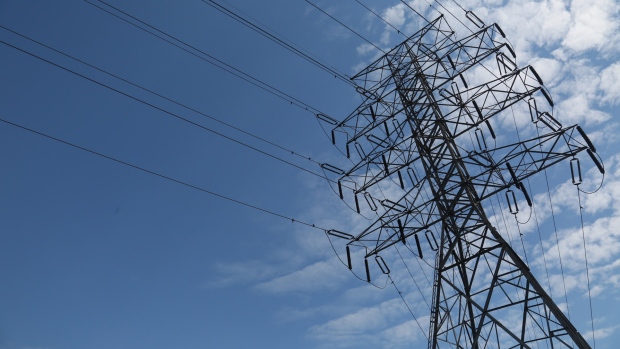Canadian Hydropower Transmission delivers HVDC clean energy via New England Clean Energy Connect and Champlain Hudson Power Express, linking HydroQuébec to Maine and New York grids for renewable energy, decarbonization, and lower wholesale electricity rates.
Key Points
HVDC delivery of HydroQuébec power to New England and New York via NECEC and CHPE, cutting emissions and costs.
✅ 1,200 MW via NECEC; 1,000 MW via CHPE.
✅ HVDC routes: 145-mile NECEC and 333-mile CHPE.
✅ Debates: land impacts, climate justice, wholesale rates.
As the sole residents of unorganized territory T5 R7 deep within Maine's North Woods, Duane Hanson and his wife, Sally Kwan, have watched the land around them—known for its natural beauty, diverse wildlife and recreational fishing—transformed by decades of development.
But what troubles them most is what could happen in the next few months. State and corporate officials are pushing for construction of a 53-mile-long power line corridor cutting right through the woods and abutting the wild lands surrounding Hanson's property.
If its proponents succeed, Hanson fears the corridor may represent the beginning of the end of his ability to live "off the land" away from the noise of technology-obsessed modern society. Soon, that noise may be in his backyard.
"I moved here to be in the pristine wilderness," said Hanson.
With his life in what he considers the last "wild" place left on the East Coast on the line, the stakes have never felt higher to Hanson—and many across New England, as well.
The corridor is part of the New England Clean Energy Connect, one of two major and highly controversial transmission line projects meant to deliver Canadian hydropower from the government-owned utility HydroQuébec, in a province that has closed the door on nuclear power, to New England electricity consumers.
As New England states rush to green their electric grids and combat the accelerating climate crisis, the simultaneous push from Canada to expand the market for hydroelectric power from its vast water resources, including Manitoba's clean energy, has offered these states a critical lifeline at just the right moment.
The other big hydropower transmission line project will deliver 1,000 megawatts of power, or enough to serve approximately one million residential customers, to the New York City metropolitan area, which includes the city, Long Island, and parts of the Hudson Valley, New Jersey, Connecticut and Pennsylvania.
The 333-mile-long Champlain Hudson Power Express project will consist of two high voltage direct current cables running underground and underwater from Canada, beneath Lake Champlain and the Hudson River, to Astoria, Queens.
There, the Champlain Hudson project will interconnect to a sector of the New York electricity grid where city and corporate officials say the hydropower supplied can help reduce the fossil fuels that currently comprise significantly more of the base load than in other parts of the state. Though New York has yet to finalize a contract with HydroQuébec over its hydropower purchase, developers plan to start construction on the $2.2 billion project in 2021 and say it will be operational in 2025.
The New England project consists of 145 miles of new HVDC transmission line that will run largely above ground from the Canadian border, through Maine to Massachusetts. The $1 billion project, funded by Massachusetts electricity consumers, is expected to deliver 1,200 megawatts of clean energy to the New England energy grid, becoming the region's largest clean energy source.
Central Maine Power, which will construct the Maine transmission corridor, says the project will decrease wholesale electric rates and create thousands of jobs. Company officials expect to receive all necessary permits and begin construction by the year's end, with the project completed and in service by 2020.
With only months until developers start making both projects on-the-ground realities, they have seized public attention within, and beyond, their regions.
Hanson is one among many concerned New England and New York residents who've joined the ranks of environmental activists in a contentious battle with public and corporate officials over the place of Canadian hydropower in their states' clean energy futures.
Officials and transmission line proponents say importing Canadian hydropower offers an immediate and feasible way to help decarbonize electricity portfolios in New York and New England and to address existing transmission constraints that limit cross-border flows today, supporting their broader efforts to combat climate change.
But some environmental activists say hydropower has a significant carbon footprint of its own. They fear the projects will make states look "greener" at the expense of the local environment, Indigenous communities, and ultimately, the climate.
"We're talking about the most environmentally and economically just pathway" to decarbonization, said Annel Hernandez, associate director of the NYC Environmental Justice Alliance. "Canadian hydro is not going to provide that."
To that end, environmental groups opposing Canadian hydropower say New York and New England should seize the moment to expedite local development of wind and solar power.
Paul Gallay, president of the nonprofit environmental organization Riverkeeper—which withdrew its initial support for the Champlain Hudson Power Express last November— believes New York has the capacity to develop enough in-state renewable energy sources to meet its clean energy goals, without the new transmission line.
Yet New York City's analysis shows clearly that Canadian hydropower is critical for its clean energy strategy, said Dan Zarrilli, director of OneNYC and New York City's chief climate policy adviser.
"We need every bit of clean energy we can get our hands on," he said, to meet the city's goal of carbon neutrality by 2050 and help achieve the state's clean energy mandates.
Removing Canadian hydropower from the equation, said Zarilli, would commit the city to the "unacceptable outcome" of burning more gas. The city's marginalized communities would likely suffer most from the resulting air pollution and associated health impacts.
While the two camps debate Canadian hydropower's carbon footprint and what climate justice requires, this much is clear: When it comes to pursuing a zero-carbon future, there are no easy answers.
Hydropower's Carbon Footprint
Many people take for granted that because hydropower production doesn't involve burning fossil fuels, it's a carbon-neutral endeavor. But that's not always the case, depending on where hydropower is sourced.
Large-scale hydropower projects often involve the creation of hydroelectric dams and reservoirs, and, in some cases, repowering existing dams to generate clean electricity. The release and flow of water from the reservoir through the dam provides the energy necessary to generate hydropower, which long-distance power lines, or transmission lines, carry to its intended destination—in this case, New England and New York.
The initial process of flooding land to create a hydroelectric reservoir can have a sizable carbon footprint, especially in heavily vegetated areas. It causes the vegetation and soil underwater to decompose, releasing carbon dioxide and methane—a greenhouse gas 84 times more potent over a 20-year period than carbon dioxide.
Hydropower accounts for 60 percent of Canada's electricity generation, and HydroQuébec has planned to increase capacity to 37,000 MW in 2021, with the nation second only to China in the percentage of the world's total hydroelectricity it generates. By contrast, hydropower only accounts for seven percent of U.S. utility-scale electricity generation, making it a foreign concept to many Americans.
As New England works to introduce substantial amounts of Canadian hydropower to its electricity grid, hydropower proponents are promoting it as a prime source for clean electricity, and new NB Power agreements are expanding regional transfers within Canada as well.
Last fall, Central Maine Power formed its own political action committee, Clean Energy Matters, to advance the New England hydropower project. Together with HydroQuébec, the Maine utility has spent nearly $17 million campaigning for the project this year.
Related News







